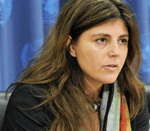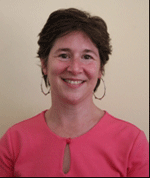Other news
Published on Wed, 2013-06-12 00:00
From People's Rights to Corporate Privilege: A South Feminist Critique of the HLP Report on Post 2015 Development Agenda The High Level Panel of Eminent Persons Report on the Post 2015 Development Agenda conveys a questionable sense of optimism for women. The report at first appears to have positively responded to the world-wide call from women to have a stand-alone and expanded gender equality goal. There are targets for gender, children and young people across several of the goals, as well as possibilities for indicators on gender, children and young people to be later developed at country level. Sexual and reproductive health and rights is also explicit. |
Published on Wed, 2013-06-05 00:00
The much awaited High-Level Panel (HLP) Report on the Post-2015 development agenda is deeply disappointing for LDC civil society. While setting the ending of extreme poverty as a core objective, and an aspiration to ensure every person achieves a basic standard of well-being, it ignores existing agreements that focus particularly on the world’s poorest and most marginalised LDCs. The HLP Report ironically gives no “special attention” to the LDCs, as called for in previously agreed development efforts. It is even regressive in the spirit of global partnership, |
Published on Wed, 2013-05-29 00:00
United Nations independent experts today called on countries to ensure the post-2015 development agenda focuses on equality, social protection and accountability, noting that one billion people around the world are still living in poverty. “The rise of inequality has severely undermined the achievements of the Millennium Development Goals, or MDGs,” the independent experts said in their message to Member States which will meet this week in New York to discuss how to a shape a new set of global development goals for the period after the 2015 deadline of the MDGs. |
Published on Tue, 2013-05-28 00:00
Developing countries stressed the importance of international economic factors and means of implementation in formulating the United Nations Sustainable Development Goals (SDGs). The third session of the United Nations General Assembly Open Working Group (OWG) on Sustainable Development Goals took place on 22-24 May in New York. The thematic clusters were food security and nutrition, sustainable agriculture, desertification, land degradation and drought, as well as water and sanitation. |
Published on Tue, 2013-05-07 12:55
Interview with Magdalena Sepúlveda, Special UN Rapporteur for Human Rights and Extreme Poverty What are the Guiding Principles on Extreme Poverty and Human Rights? They are a set of human rights norms recently adopted by the UN Human Rights Council. They provide, for the first time, global policy guidelines validating specific obligations incumbent on States with respect to persons living in extreme poverty. |
Published on Thu, 2013-05-02 10:06
This publication analyses the role gender equality plays in the post-Rio+20 process for a new development agenda centered around a set of SDGs. It looks at proposals and efforts to integrate gender equality and women's rights into efforts to define the SDGs and argues that a new global women's coalition of committed advocates and women's rights activists to focus more aggressively on governance and policy reform in the post-2015 development agenda, particularly on macro-economic policy reform. |
|
Published on Tue, 2013-04-23 16:09
A conceptual discussion will precede the identification of specific Sustainable Development Goals as momentum picks up on the follow-up to the June 2012 Conference on Sustainable Development (Rio+20 Conference). Two topics will be the focus of the second session of the United Nations General Assembly Open Working Group (OWG) on Sustainable Development Goals (SDGs) that will take place on 17-19 April at the UN headquarters in New York. The first will be on conceptualising the SDGs and the SDG process, and the second on poverty eradication. |
|
Published on Tue, 2013-04-02 00:00
This time it is Cyprus' turn to face bitter financial crisis as bank depositors get hit and capital controls are imposed. Will the lessons about these crises ever be learnt? The Cyprus crisis has again shown that over-dependence on the financial sector and an unregulated and liberalised financial system can cause havoc to an economy. The particular manner in which a financial crisis manifests itself may be different from country to country, depending on the ways that country became financially over-reliant or over-liberalised, and also on how ever-changing external conditions impact on the country. |
|
Published on Thu, 2013-03-07 00:00
"Illicit financial flows - generated from crime, corruption, embezzlement and tax evasion - represent a major drain on the resources of developing countries, reducing tax revenues and investment inflows, hindering development, exacerbating poverty and undermining the enjoyment of human rights," a United Nations independent expert has said. In an interim report presented at the current twenty-second session of the UN Human Rights Council, Independent Expert on foreign debt Mr Cephas Lumina said that it is estimated that, on average, developing countries lost between US$783 billion and US$1,138 billion in illicit financial outflows in 2010. The expert added that these flows have increased in real terms to 8.6 per cent over the period 2001-2010, suggesting that existing measures to tackle the problem have not had a significant impact. |
| Source: . Published on Tue, 2012-03-06 21:35 |










